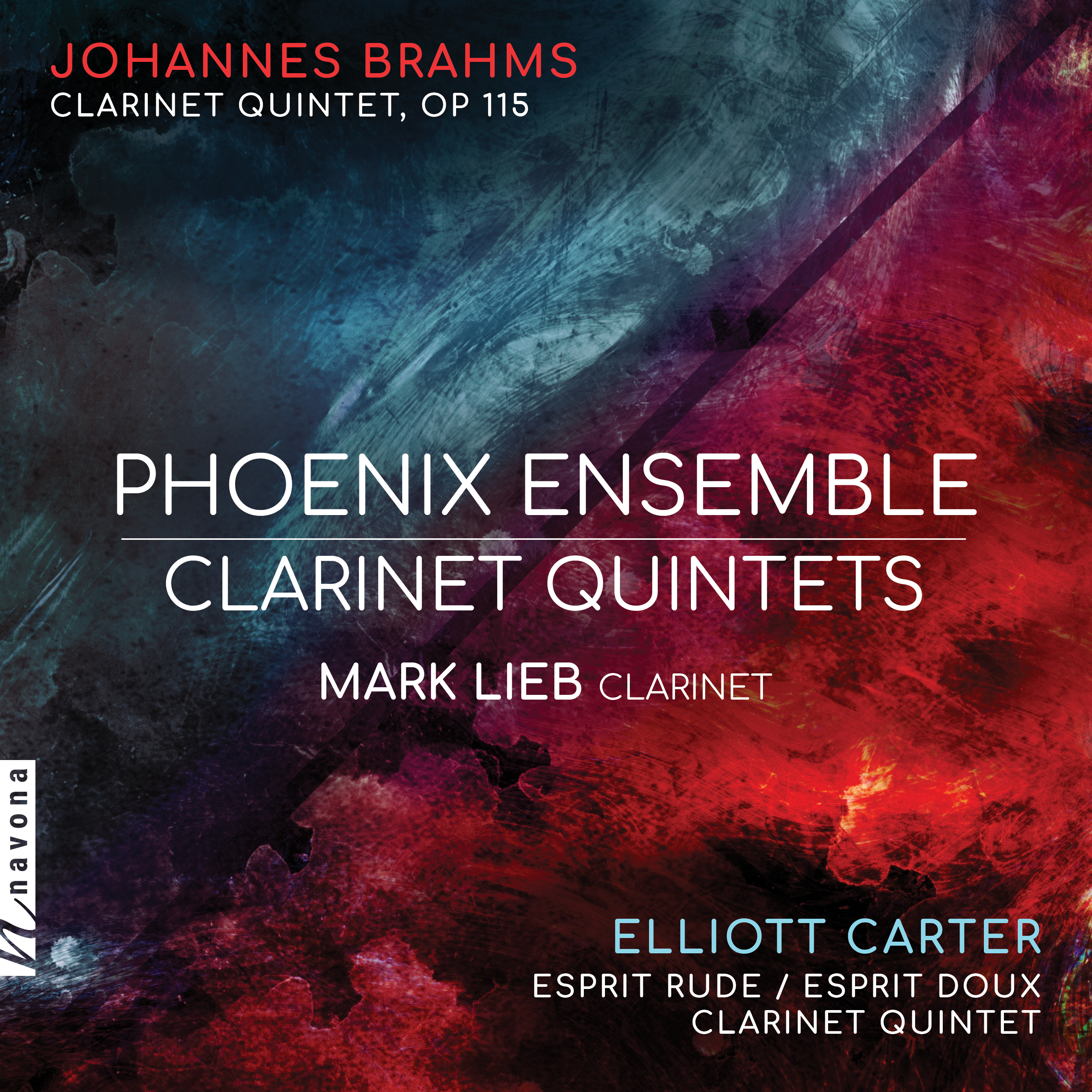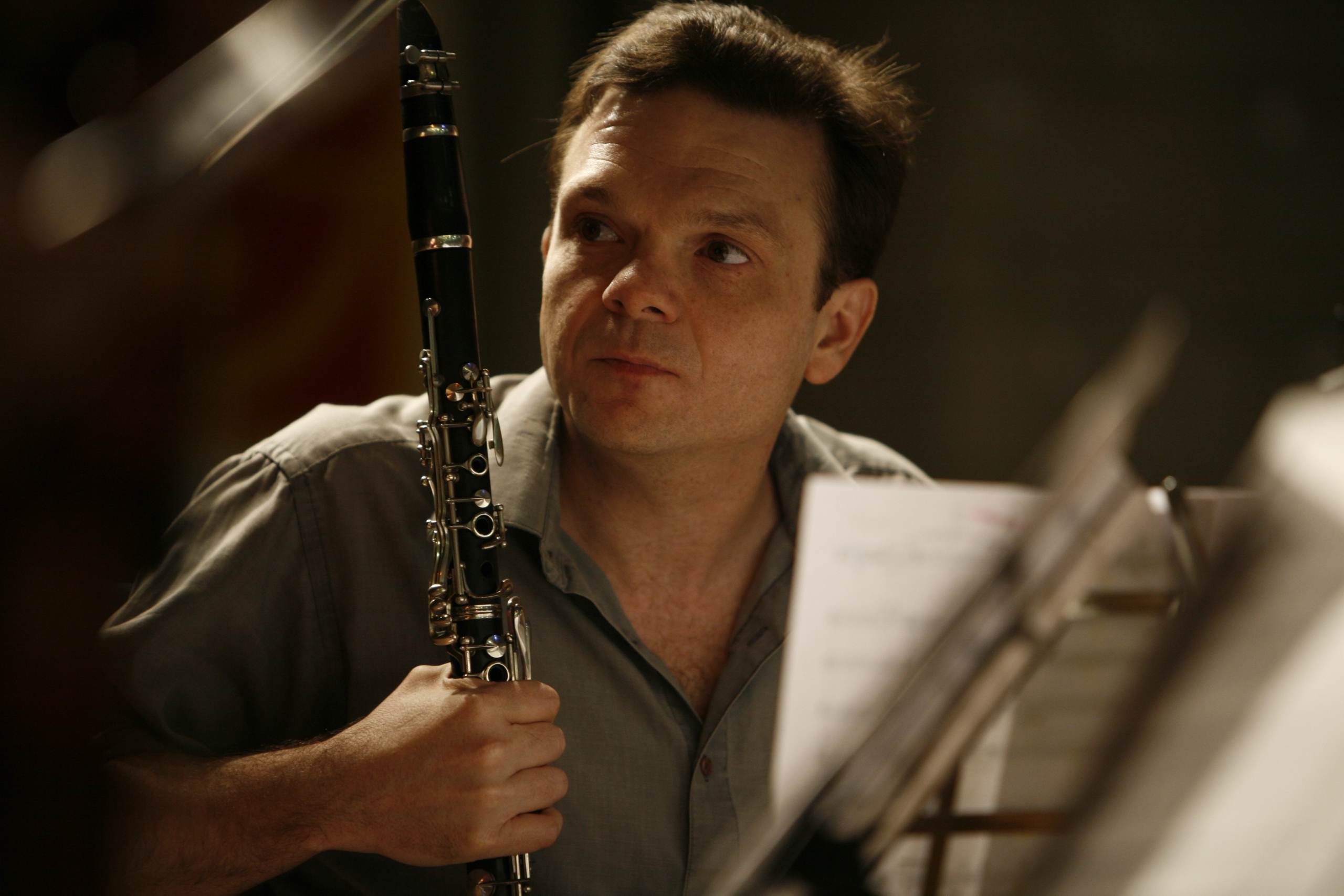Clarinetist Mark Lieb is the Founder and Artistic Director of the Phoenix Ensemble. He is a graduate of Northwestern University and The Juilliard School, where he studied clarinet performance with Robert Marcellus, former Principal clarinet with the Cleveland Orchestra, and David Shifrin, clarinet soloist and former Artistic Director of the Chamber Music Society of Lincoln Center. He has been an active professional freelance musician since 1991, performing with many orchestras, opera companies, chamber ensembles, and new music groups in New York City. He has a special love for chamber music, and has been the guiding force behind the Phoenix Ensemble for 25 years. He has toured with various ensembles throughout the United States, Europe, and Asia, and has recorded with New World Records, Mode Records, Furious Artisans, Newport Classics, Dorian, Innova, Albany Records, and BMG Classics labels.
Today, Mark is our featured artist in “The Inside Story,” a blog series exploring the inner workings and personalities of our artists. Read on to learn the long yet quite rewarding listening process Mark went through to best acquaint himself with the works on this album…
Who are your musical mentors?
My most influential teacher was Robert Marcellus. I studied with him in my undergrad years at Northwestern. I think his concept of sound and musicianship has had the most lasting effect on me. Also during that time, every weekend I went to see the Chicago Symphony, and was completely inspired by Larry Combs. I was a member of the Chicago Civic Orchestra my senior year, and got to work with Combs a bit in sectionals and some lessons. In New York City, as a graduate student at The Juilliard School, I studied with David Shifrin, who was also an important mentor to me.
How do you prepare for a recording?
When I finally make a decision about what will be on a recording project, I really enjoy doing some intense research. For JOHANNES BRAHMS / ELLIOTT CARTER: CLARINET QUINTETS, I read several books on each composer, including Jan Swafford’s biography on Brahms, which was interesting because it was not based so much on musical analysis of his scores, but on his personal life. I also read Elliott Carter’s Collected Essays and Lectures and the Cambridge Carter Studies. But what helped even more was to do a “binge listening” of each composer’s whole musical output in chronological order. It’s easier to do this these days, when we have Wikipedia works lists and streaming services where you can line up all of a composer’s works from earliest to latest. There is no better way to understand a composer, and because both the Brahms and Carter Clarinet Quintets are very late works, doing this was even more important and revealing to me.
Do you have any specific hopes about what this album will mean to listeners?
Partnering the Brahms and the Carter Clarinet Quintets seems like an odd and non-congruent idea, but actually there are some interesting connections. Carter was born only 11 years after the death of Brahms, in 1908, and soon became one of the first important modernist composers. That short time period of upheaval and change, between Brahms’ death in 1897 and the time of Carter’s early works in the 1920s and 30s is really fascinating, and to know more about that history can clue you into why Brahms sounds like Brahms and Carter sounds like Carter. It would be great to inspire listeners to think about those historical connections. Brahms composed his quintet very late in his life, in 1891, and died only six years after. Carter composed his quintet late in his life also (2007), when he was 99 years old. Any composer writing a clarinet quintet will have the Mozart and Brahms quintets haunting them as major influences. Carter’s quintet has such a wise and mature feel to it, with some beautiful late romantic Brahmsian moments in the middle sections.
If you could collaborate with anyone, who would it be?
I have always been a huge fan of Chick Corea. Such an incredible jazz musician, but also he clearly has classical chops. I saw him play live recently at the Blue Note in NYC and it was an amazing experience.
If we looked through your music library, what would we be surprised to find?
Maybe not so surprisingly, I am a big jazz fan, and have a very large collection of jazz in my library. I have already mentioned Chick Corea. I listen to a lot of early stuff like Art Tatum and Louis Armstrong, and also gravitate to more modern jazz like Ornette Coleman, Miles Davis, and Cecil Taylor.
What was the first performance you remember seeing?
I grew up in Columbus OH. When I was a kid, my parents took me to a Columbus Symphony concert which ended with Respighi’s Pines of Rome. It was a perfect first orchestra experience for a young person just starting on the clarinet. There are all of those gorgeous clarinet solos in the 3rd movement (The Pines of Janiculum) and for a kid you can’t beat the last movement with the antiphonal brass and the huge sound of the orchestral finale. It was truly inspiring.

JOHANNES BRAHMS / ELLIOTT CARTER: CLARINET QUINTETS is now available through Navona Records for streaming or purchase. Click here to explore this new album.



